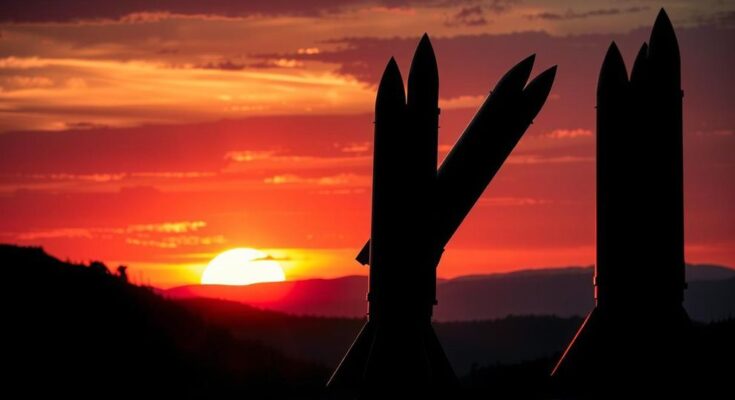North Korea launched new anti-aircraft missiles under Kim Jong Un’s supervision, coinciding with U.S.-South Korea Freedom Shield drills, which North Korea viewed as provocations. The missile test marks the sixth weapons launch this year, with threats of “grave consequences” for future drills. Diplomatic engagement appears unlikely as North Korea prioritizes relations with Russia amidst ongoing concerns about military strength and regional stability.
North Korea has conducted a test launch of new anti-aircraft missiles under the supervision of leader Kim Jong Un, marking its sixth weapons test in 2023. This launch coincided with the conclusion of the Freedom Shield military exercises conducted jointly by the United States and South Korea, which North Korea has condemned as provocative rehearsals for invasion. In response, the North Korean military has threatened dire consequences should such drills occur again.
This missile testing comes amid heightened military tensions in the region, specifically following the recent 11-day Freedom Shield exercises, which aimed to enhance the defensive readiness of U.S. and South Korean forces. The North has continuously portrayed these drills as a direct threat to its security, leading to aggressive military displays, including the firing of ballistic missiles shortly after the exercises commenced.
Kim Jong Un described the newly tested missiles as a significant addition to North Korea’s defense capabilities. Following the Freedom Shield exercises, North Korea’s Defense Ministry accused the U.S. and South Korea of planning to destroy its nuclear facilities, warning that their military maneuvers could result in severe repercussions.
Despite ongoing tensions, former President Donald Trump has indicated a willingness to resume diplomatic discussions with Kim. Just a few years ago, Trump and Kim held multiple summits aimed at denuclearization, though these efforts ultimately dissolved over disagreements regarding sanctions. Currently, experts believe Kim is unlikely to entertain such diplomatic overtures while he solidifies relations with Russia amidst its ongoing conflict in Ukraine.
Until the situation in Ukraine stabilizes, analysts suggest that North Korea will prioritize military development and allied support over dialogue with the U.S. Despite Trump’s outreach, North Korea’s focus remains set on reinforcing its military strength. With escalating missile tests coinciding with joint U.S.-South Korea drills, the chance for further military provocations remains high, maintaining pressure on regional stability. The U.S. administration views ongoing military exercises as essential for deterrence, emphasizing the need to maintain peace in the region amidst rising tensions.
In summary, North Korea’s missile tests reflect ongoing military tensions on the Korean Peninsula, particularly in response to the recent U.S.-South Korea Freedom Shield exercises. The North’s statements regarding threats to its sovereignty underline its defiance in the face of joint drills it perceives as provocations. While diplomatic efforts may resume in the future, current priorities for Pyongyang seem focused on military capabilities, further complicating stability in the region.
Original Source: www.newslooks.com




